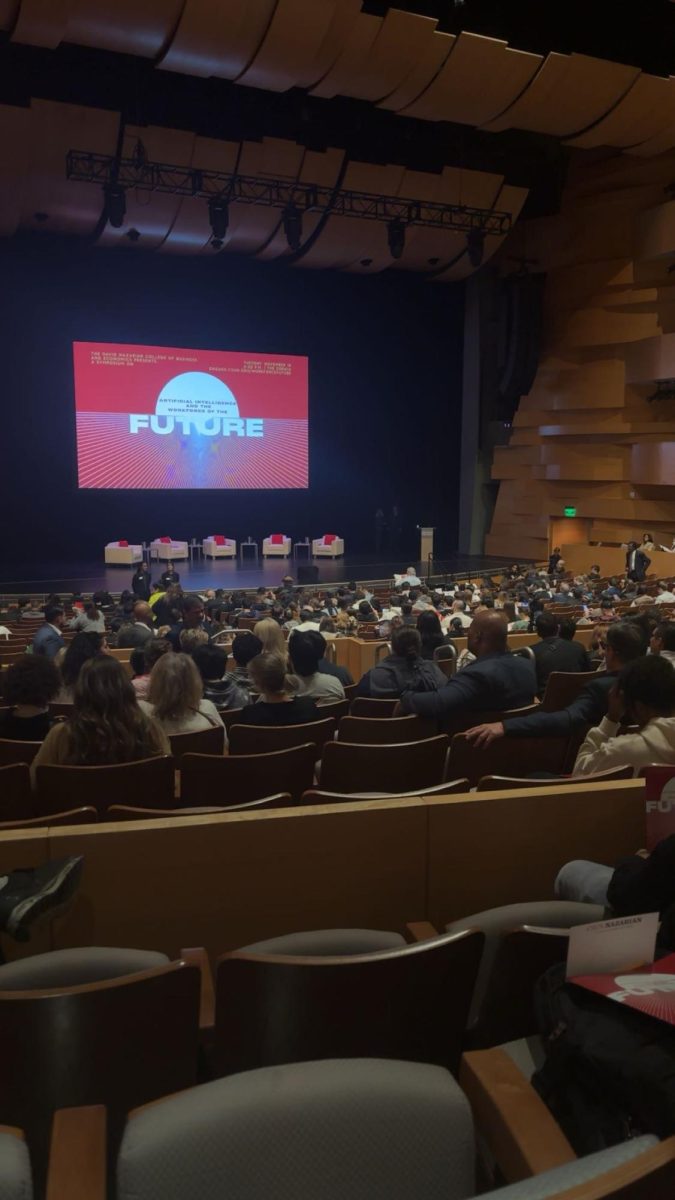The Soraya at CSUN recently hosted an event focused on artificial intelligence (AI) and its influence on the workforce. On Nov.19th united alumni, students and professionals, enthusiastic to learn about the evolving landscape of technology and its impact on the job market.
Jesús Montaz, the keynote speaker, kicked things off with a perspective on computing. He shared insight: “everything in the world could be represented by something or nothing.” Montaz took the audience through the origins of artificial intelligence, tracing its roots back to 1956, and offering historical context for the technological journey shaping the world today.
Montaz delved into the evolution of AI, explaining how machine learning has advanced over the years. Early AI development relied heavily on human labor, with thousands of people manually labeling data and images. Now, self-supervised learning has changed the game, allowing computers to learn on their own with far less human input, making the process much faster and more efficient.
One key breakthrough discussed was the rise of foundation models—powerful AI systems that can process vast amounts of data in multiple languages with minimal adjustments. These models have opened up new possibilities for insight and analysis, representing a major leap forward in AI’s capabilities.
The panel examined how AI is transforming business across various sectors. From boosting productivity and improving customer service to revolutionizing financial operations and talent management, AI is reshaping how companies operate. One example involved a company that, after handling 10 million interactions, achieved a 94% self-service rate—freeing up human workers to tackle more creative and complex tasks.
The discussion was directed to the potential risks of AI. The speakers addressed issues like the probabilistic nature of AI responses, regulatory challenges, and the ethical considerations that come with rapid technological advancement. Montaz shared three guiding principles for responsible AI development: augmenting human intelligence rather than replacing it, ensuring creators retain ownership of their data, and maintaining transparency in AI systems.
The panelists brought a range of perspectives to the table. Stephen Cheung from the Los Angeles Economic Development Corporation (LAEDC) discussed how AI is increasing productivity, while Cameron Kinloch from Weights & Biases highlighted the speed of technological change. Karina Montilla Edmonds from SAP (Systems Analysis Program Development) emphasized the importance of a diverse, collaborative, and curious workforce to navigate this evolving landscape.
A takeaway from the discussion was the importance of understanding and integrating AI into the workplace. The panel agreed that professionals who embrace AI—rather than fear it—will be the most successful in the future job market.
Looking ahead, the panelists noted the rapid pace of technological change. Cheung made a particularly striking comment about the upcoming Olympics, suggesting that in just four years, we’ll see changes that could reshape entire industries and the workforce itself.
As the evening wrapped up, the event at The Soraya left attendees with a powerful message: AI is not here to replace us but to augment our abilities. It’s not a threat, but a tool that can unlock incredible potential for human progress when used responsibly and creatively.
The future of the workforce, the panelist concluded, isn’t about humans versus machines, but about humans and machines working together in harmony.











